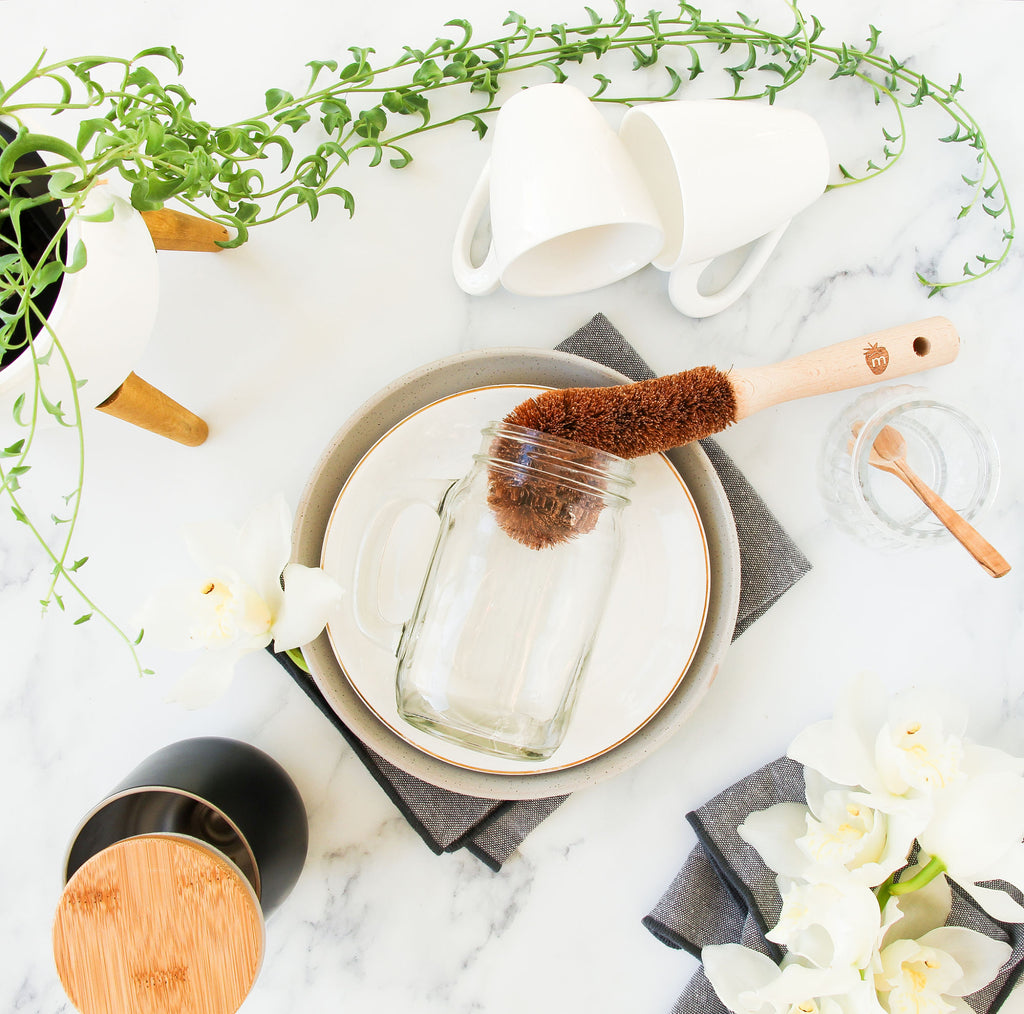
Eco tips for your kitchen - 10 top tips
'In a study published in Science Advances, researchers found that residents of the U.S. and the U.K. produce more plastic waste per person than any other nation, with Americans generating an average of 105kg (231lbs) of plastic per year. The British are close behind, throwing away almost 99kg (218lbs) annually. The report, which focuses mainly on U.S. waste, shows that people in richer nations generate more plastic waste than people in less developed countries: South Korea and Germany take the respective third and fourth spots in the top 10 countries ranked by plastic trash per capita.' (Forbes 2021)
France generates just under 44kg (97lbs) of plastic waste per person—less than half that produced by Brits. But France has taken a proactive stance against single-use plastic, including the introduction of a penalty system that increases the cost of non-recyclable plastics. We have a post due in a couple of months that will discuss what system changes could be made here.
In New Zealand we discard 15.5 million tonnes of waste each year. That is 3,200kg for every kiwi! Right now we only recycle 28% of this waste. Then Australia generates 6.3 billion tonnes of plastic. Only 9% has been recycled, 12% incinerated and 5 billion in landfills
NZ is way behind the rest of the western world in waste management even though there are other countries who produce more waste. It costs 18 times more to send waste to landfills in the UK compared to NZ which is another deterrent (again more on these ideas in a later post).
So after all these recent facts....let's see what we can do to swap out those nasty unwanted plastic items from your kitchen and become a sustainability champion with Munch.
1 Dish brushes
This is an easy and obvious one to deal with first. Get rid of that plastic dish brush as it will with us on the planet for 100's of years! Your great grandchildren will be digging it up from the ground - yuck. Replace them with a wooden ethically sourced dish brush. There are also wooden bottle brushes, cup brushes and vege brushes available.
2 Dish cloth
90% of dish cloths contain microfibre which makes a complete mess of our waterways and prevents any form of breakdown in the landfill. So replace your common dishcloth with a swedish style one made from cellullose cotton. We have a number of very cool ones that are designed by local designers.
3 Pot scourers
Get rid of those pot scourers made from microfibre or even steel (unless you have a recycling option for the steel) and say hello to natural pot scourers. These are often made from cellulous cotton and sisal.
4 Dish soap and liquids
Our grannies used to use dish soaps for their sinks but they have almost all disappeared from the market. We have recently released a dish soap that is 100% natural and made in NZ. The benefit of a dish soap is that you are saving over 6 plastic bottles.
If you are already using a Liquid dish soap and do not wish to change to a soap at least use a refillery to refill your bottle. There are plenty of eco cleaning brands on the market to refill with. Remember dish soap or liquid can not be used in a dishwashing machine. However there are plenty of brands that offer eco friendly tablets.
5 Bench top cleaners
Again there are plenty of brands on the market that offer eco multi purpose bench cleaners. Our favourite is the Ecostore Multi purpose cleaner that you can find at our refillery online or in store.
6 Beeswax wraps, cotton food covers and silicone food covers
We have not had plastic wrap/glad wrap in our kitchen for over 6 years as all the food covers options has completely enabled us to replace the need for plastic wrap. Silicone covers are great for meat, cotton food covers for salads and beeswax wraps for everything except meat.
7 Compost bins
Grab a stylish compost bin to sit on your kitchen bench so you can easily put your left over vege scraps into, to then later put in your large compost bin outside.
8 Food pegs/clips
Don't buy those plastic seal clips for sealing packets. If you need to keep food in packets then use a stainless steel pegs or a wooden food clips to keep it closed.
9 Food containers
Glass containers are the best option to store food in for long periods of time in the pantry. There are many stylish ones on the market and keep an eye out on our site in the next few months.
10 Reusable produce bags, bread bags and shopping bags
We have a number of GOTS certified organic produce bags, bread bags and shopping bags in our unique fabrics that make a fantastic alternative to the plastic bag. Look or buy 100% cotton for all these types of bags other options such as plastic coated fabrics will not be able to be broken down etc.
And a bonus number...
11 Shopping lists on your mobile
Use technology to help you and the environment. Use your mobile phone to keep shopping lists or use Alexa or Siri.

